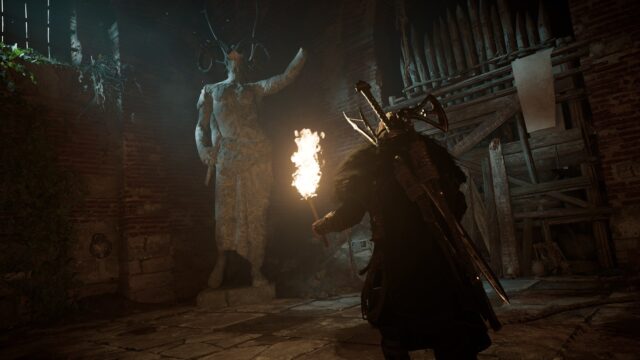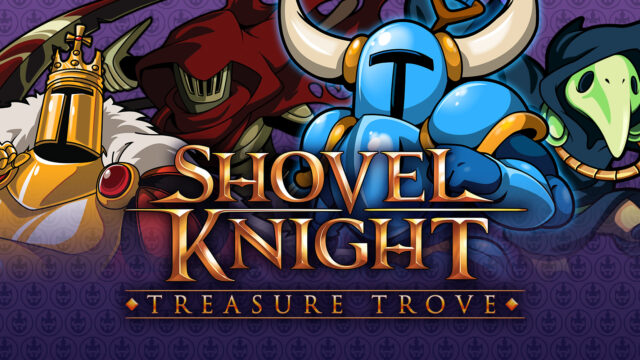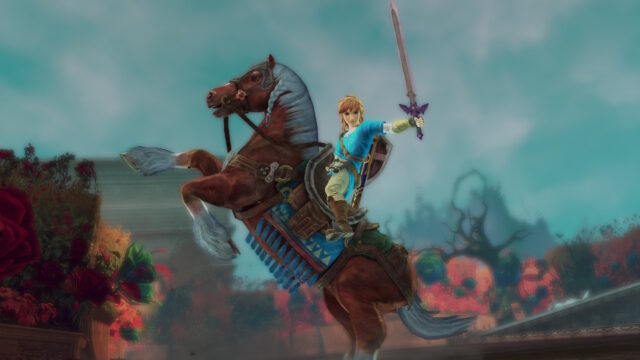Europa Universalis IV Review
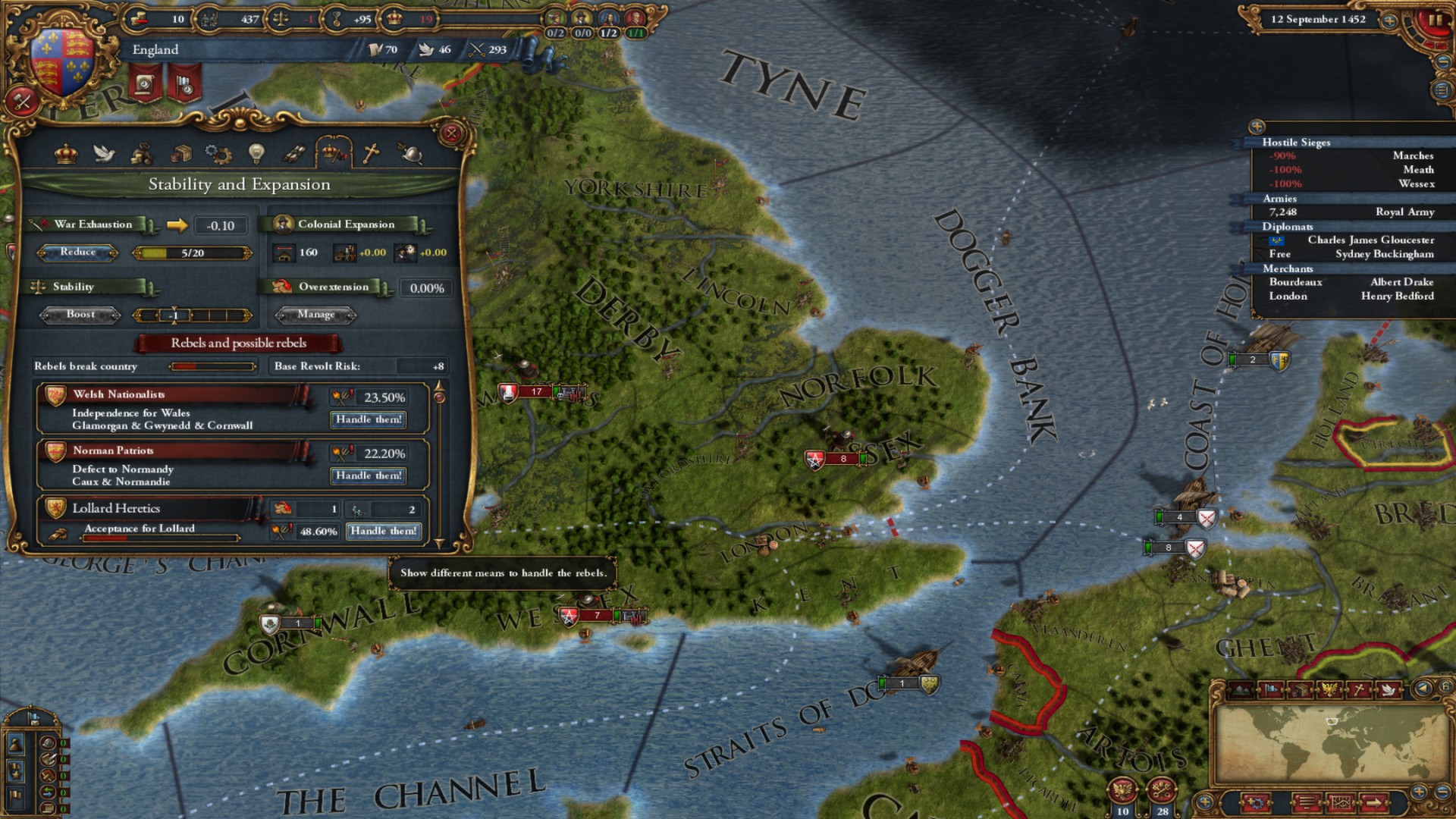
Despite Europa Universalis IV being the fourth game in the respected series, it grew in the shadow of Crusader Kings II, unexpectedly but deservedly gaining a wider audience than its predecessors. The new game from Paradox Development Studio and the chronological sequel to CK II carries the burden of high expectations. The two games can even be combined, covering almost a thousand years of human history. Complex, extensive, and profound, EU IV more than lives up to its time.
If you are a newcomer to grand strategy games, EU IV is an excellent place to start. Unlike Crusader Kings II, here you will be more firmly guided on the right path, clearly defining long-term and short-term goals without actively tying your hands. If you played CK II for the characters and the story and are unsure if you will be satisfied with a less personal policy, rest assured, EU IV can tell amazing stories and turn countries into characters. If you are a series veteran, rejoice – one of its strongest representatives is before you.
Europa Universalis IV is a game of immense scale, encompassing centuries of history, most of the globe, and enough mechanics to immerse you in deep contemplation. I have spent more time on its various pre-release versions than any game could ever extract from me in my entire life, and there is still much unexplored material here. For example, I have barely touched America, although I have developed an empire stretching across all of Europe, to Sweden and Scotland. I have also spent a lot of time observing the majestic simulation model, which creates its own unique tales of alternative history. At the very least, EU IV is a rare treasure – a detailed strategy game that is equally captivating for winners and losers.
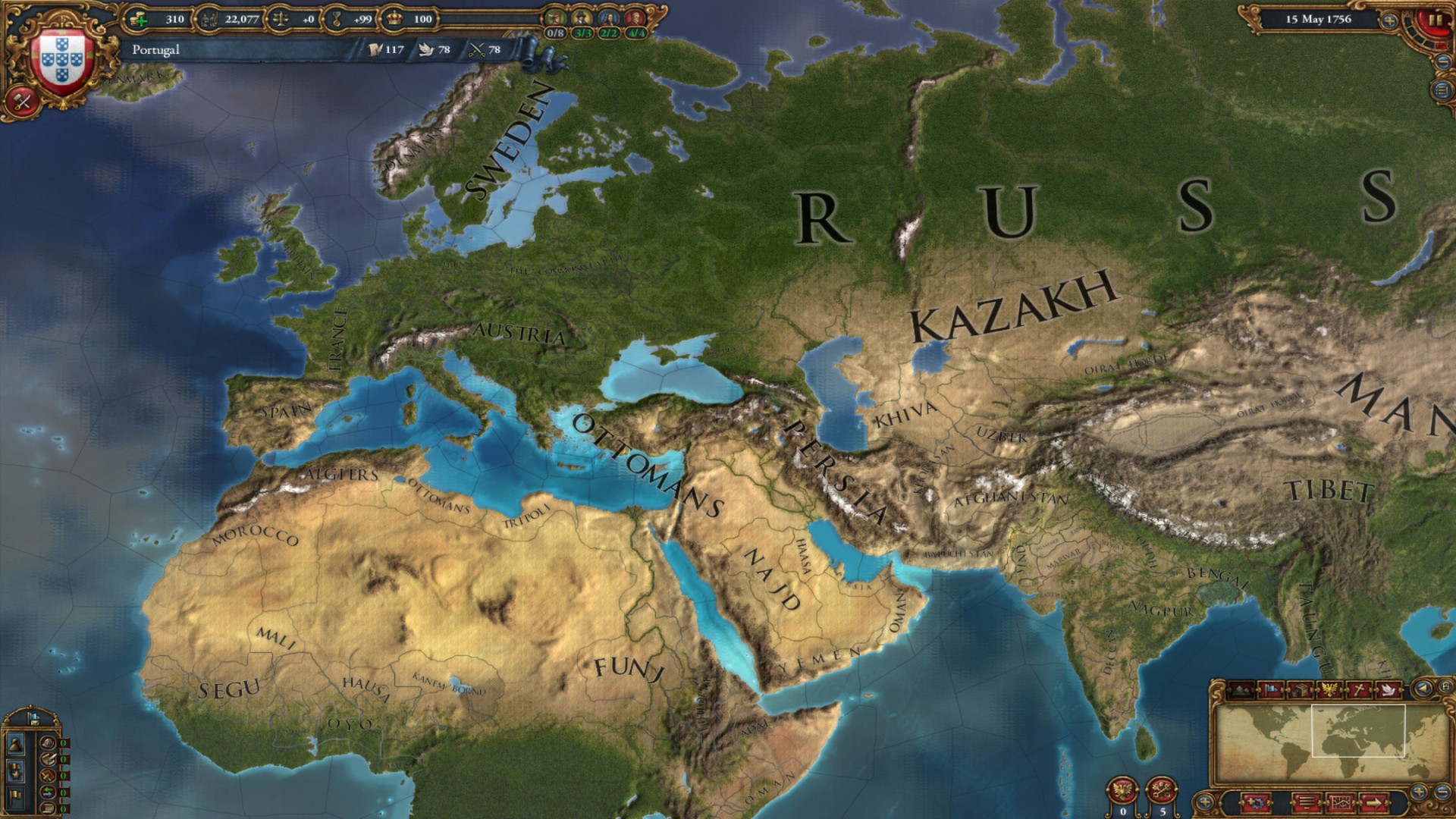
The world is a playground filled with all sorts of attractions – from the trading routes of Venice to the conquistadors of Castile on distant flanks – and in any playthrough, you won’t have all the possible toys at your disposal. Despite the depth and breadth of settings, EU IV is not as complex and free as the first installment. The player is free to experiment, expand, and destroy their empire as they please, but they will have a clearer understanding of the reasons and possible consequences of their actions than in CK II and previous EU games.
The heart of the structural changes that began in EU III is the widely spread National Ideas tree. They serve as defining qualities of a country, giving it individuality similar to the talents and skills of characters in role-playing games, and they also help determine the fate of that country. In my early playthroughs, I was too eager for short-term advantages. This may work for a small country – creating your own niche and surviving decade after decade – but my transformation of England into a military giant to hold territories during the Hundred Years’ War and quickly end the War of the Roses proved unwise.
Because the game starts “in medias res,” it is too easy to start perceiving current urgent problems as permanent. And that is a mistake. The harsh beginning of the game as England is simply a historical accident, and with the right approach and smart choice of National Ideas, it is possible to build your empire peacefully. Once the royal dynasty was established and the French got what they deserved, I realized that England would achieve a more advantageous role in the world through its fleet, trade, diplomatic power, surveillance, and regulation, rather than clashes with neighbors.
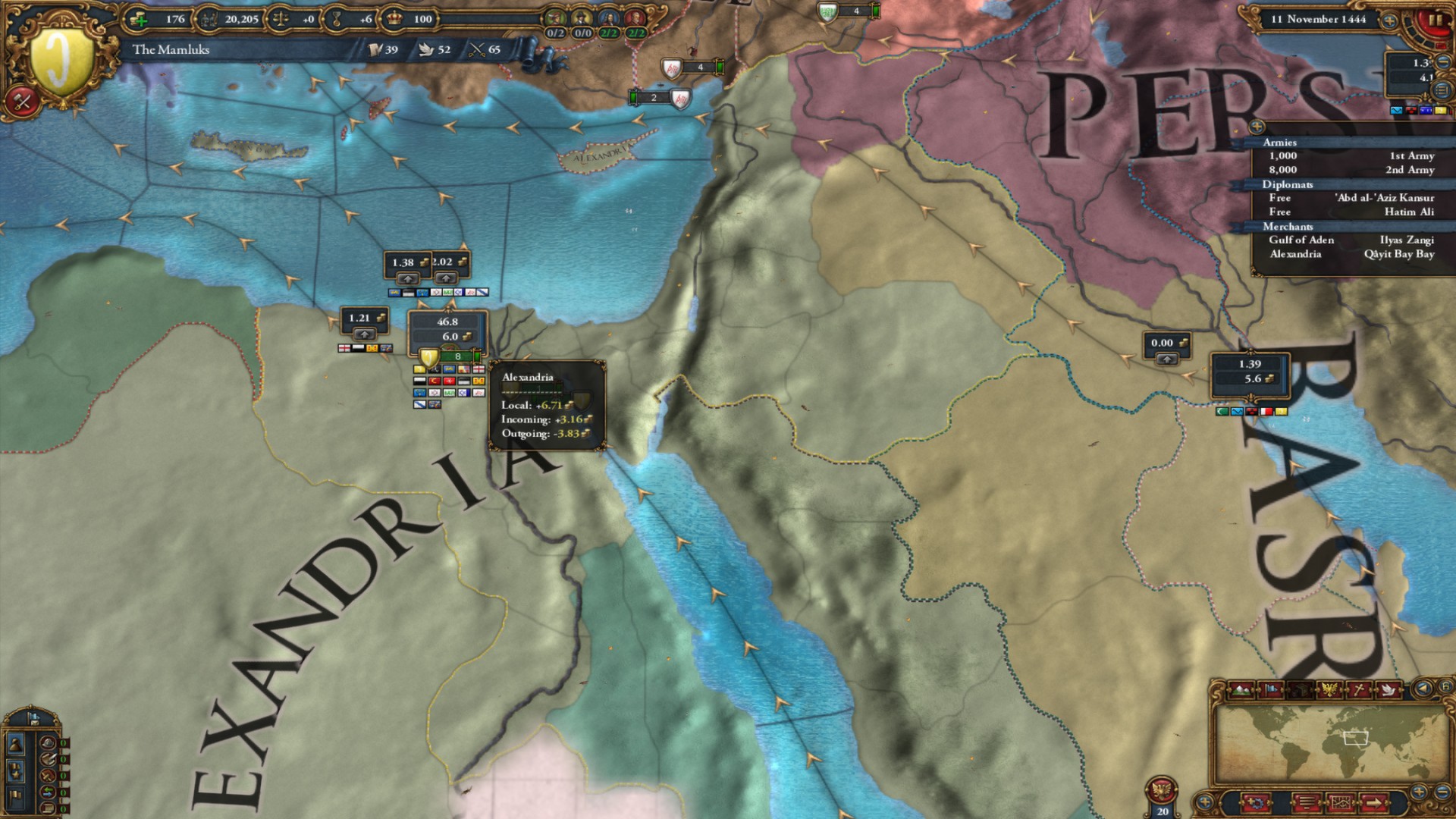
My England will differ from your England, and each of them will increasingly deviate from the real history over time. If you remove all the unnecessary things, EU IV is a magnificent and powerful set of tools that allows for various styles of play and enables experienced players to achieve more. This is what sets the game apart from Crusader Kings II, which could not offer even a fraction of the same emphasis on specialization or style improvement.
The game has missions, which are optional but come with clear instructions and structure, and almost every country has unique qualities determined by its geographical location, scenario, or the developers’ ideas, serving as strengths and weaknesses.
In Europa Universalis IV, I am inclined to strive for great victory, although long-term goals always depend on the player themselves. This is a natural inclination towards expansion and absorption, fueled by the power of new monarchs and state emissaries (colonists, merchant-diplomats, missionaries). Money is now given less attention than in previous iterations, which means that AI is less likely to ruin itself. The player will also have fewer problems with inflation and excessive debts, allowing them to seek alternative solutions to desperate situations.
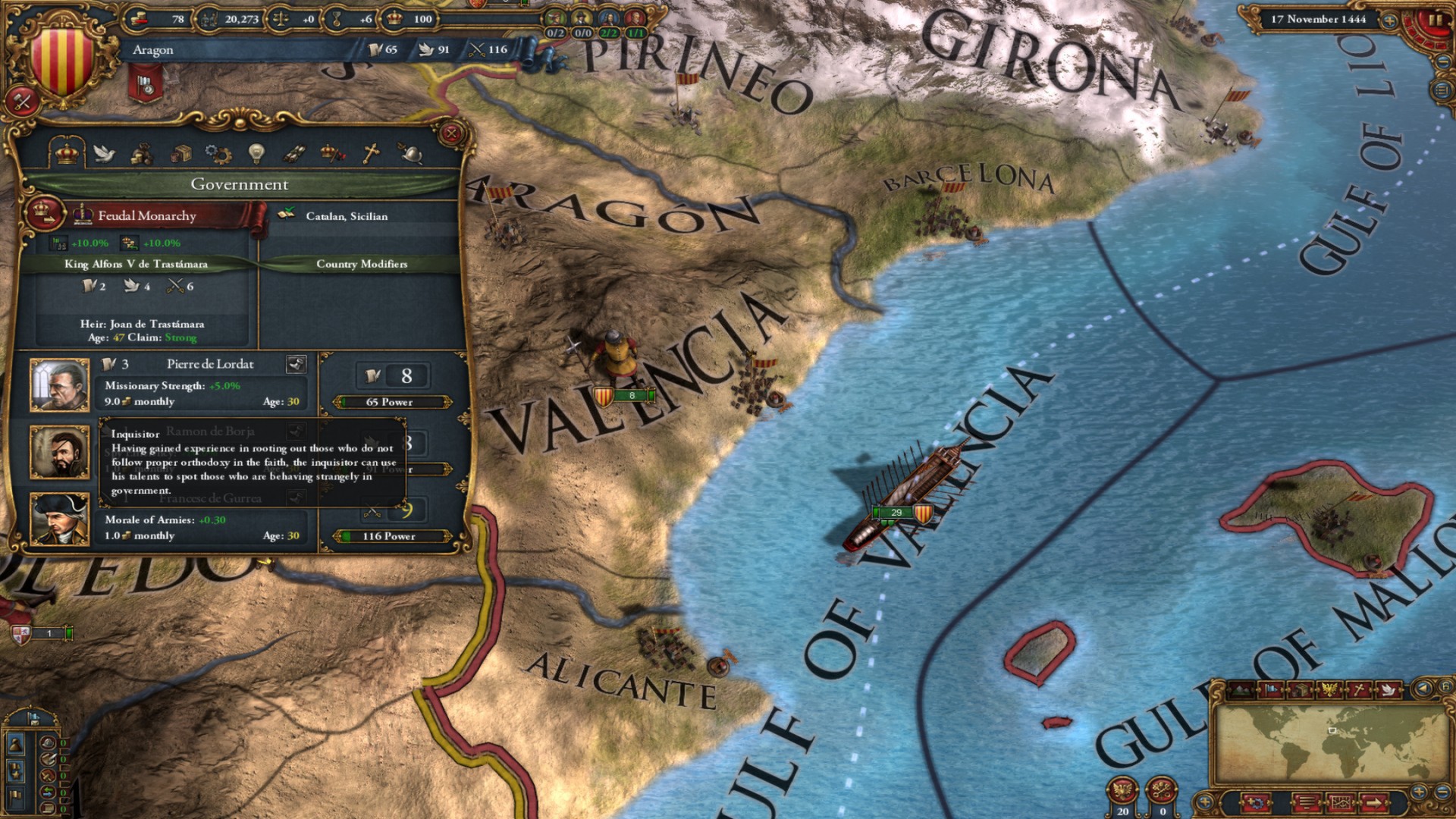
Envoys are now separate individuals, active on the map while carrying out their tasks. Their number is limited, but instead of spending the treasury left and right, each character can only engage in one specific task at a time, so when new plans arise, they need to be approached separately. This is one of the many things reworked in the fundamentals of the game – players are given a richer choice of important decisions and priorities to set in a unit of time, instead of being limited by resource scarcity. The game design mantra of EU IV and Paradox’s wide portfolio is “complex, but not convoluted system.” I would add “less pressure – more opportunities.” EU IV is not the easiest game to understand, its scale requires attentiveness and intellect, but there are no harsh punishments here. The slightest mistakes do not lead to complete failure, and one can derive separate pleasure from saving and recovering.
As the newest representative of the flagship series of global strategies from Paradox Development Studio, EU IV has a lot to prove. Crusader Kings II found a new audience and showed that people are willing to delve into the details of a frighteningly intricate interface as long as the game features incest and fratricide. The path of EU IV lies away from court intrigues, closer to creating its own country and empire, closer to mechanics and tactics that adapt to the current time period. This game also creates interesting stories, and they also require the attention of listeners. I call friends and neighbors from the apartment, point them to the colorful map, explain how events unfolded in the last hundred years and how they forever changed the world. Like the final statistics of a sports match for an experienced observer, EU IV maps have a full-fledged plot, where each conquest and colonial expedition leaves its mark.
Last year, I played Crusader Kings II the most, and each of those minutes was happy. This year, the story continued with the release of the Old Gods expansion. I’m almost certain that EU IV will now take its place, although I am waiting for a serious competitor in the form of Rome II. Fortunately, these games can coexist side by side, and they don’t have to perform under the same banner. The eagles of the Roman legions and the emerging empires of EU IV can very well coexist, offering something interesting in their own way.
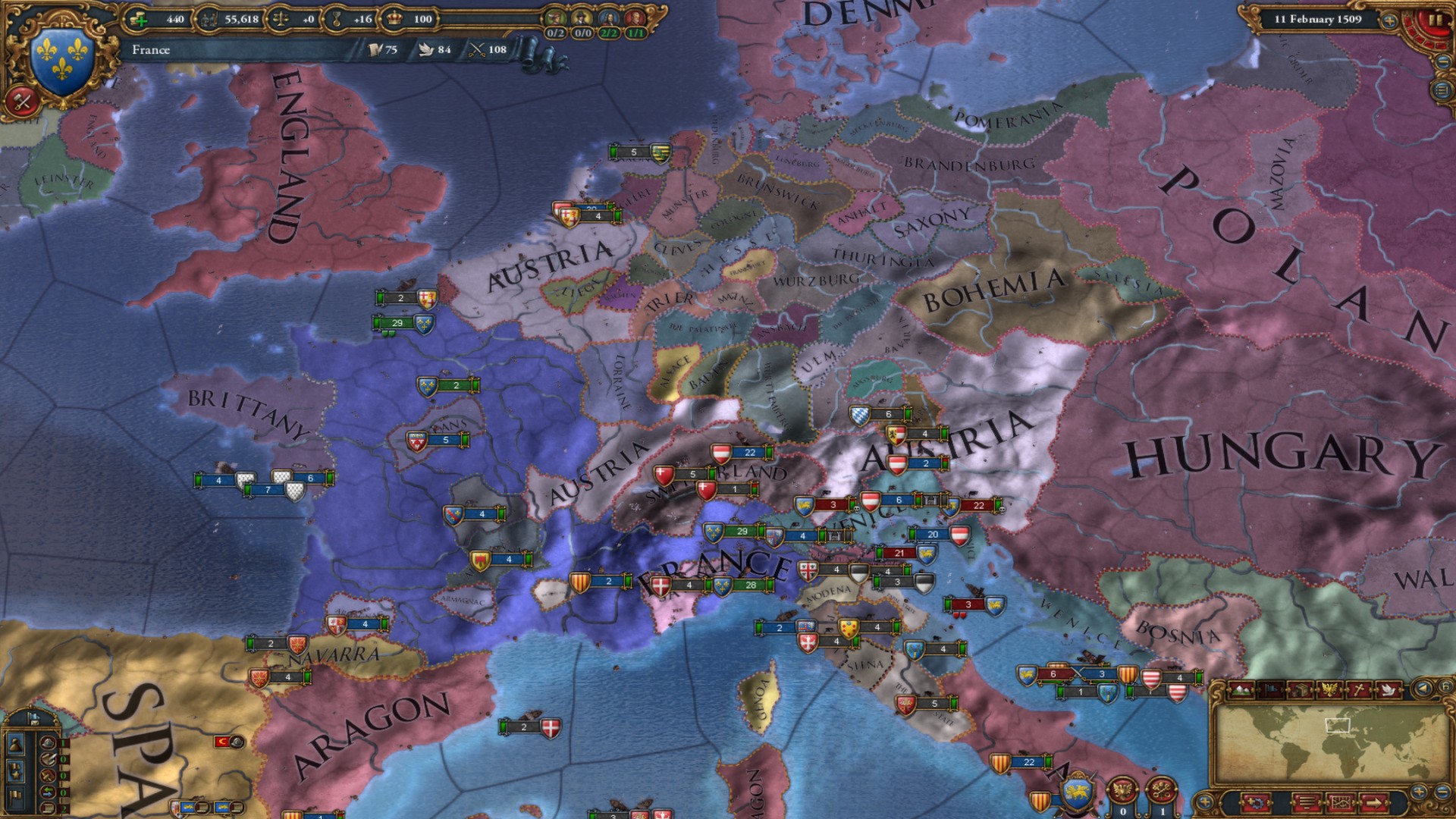
I suspect in advance that EU IV will always have something to surprise me with. Like most games that I admire, it exists as several interconnected systems, transmitting their diversity and strong qualities to each other and coming together in a simulation that is just as fascinating to observe as it is to interact with. It is a historian’s dream: the infinity of possible outcomes that can look completely bizarre but rarely seem undeserved.
EU IV is an exciting simulator, an alternative history generator, a storytelling tool, and a successful reconstruction of an established formula. It is also a surprisingly addictive game, in a sense closer to its tabletop roots than the rest of the series, despite crunching an abundance of numbers that only a computer can handle. For each country, there are numerous viable tactics, and some discoveries will be unexpected even for the developers. They have created a dynamic world with a refined balance, and it is here, rather than in any city-building simulators, that the majestic presence of a living, breathing world is felt, and the player’s impact on this world is implemented in the best possible way.
Multiplayer support is not just the icing on the cake. It is an additional cake that has something more than a faint taste of ginger. For many players, it will be the more enticing choice, and with a good company, it will be a completely different experience, full of shocks and betrayals, ending with broken friendships and declarations of vendetta. In particular, that’s how I “shared” the cake with my friends.
Share
Discuss
More Reviews
